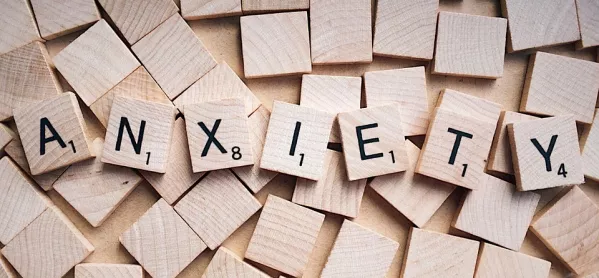In all the advice around supporting pupils experiencing anxiety during the school closures, we get a lot of what we should do but not a lot about what we shouldn’t.
While teachers are not counsellors, they are often the first point of contact for a student who is feeling anxious.
However, with very little training in anxiety management, some teachers can end up unintentionally giving guidance that doesn’t help the student and, at worst, can heighten their anxiety.
Coronavirus: Four things teachers should avoid
So, what sort of things should we avoid?
1. Shutting down the conversation
A hard-working student tells you that they’re feeling stressed about keeping up to date with work. Without even thinking, you tell them they’re going to be fine and that there’s nothing to worry about. It’s almost an automatic response.
What actually just happened is that you shut down the conversation and the student’s concerns. They feel dismissed.
If you can find the time and space (and means!) to ask a student exactly what they are worried about, you give them the opportunity to tell you what’s really on their mind. Often, it will be very different to the concern they initially mentioned. You may not be able to solve their worries, but they will leave knowing they’ve been listened to.
2. Just telling students to ‘take a break’
While some may think teenagers will be using school closures to slack off, many will be doing the opposite: working too hard through fear of falling behind.
Telling them to take a break is, of course, vital for them, but these students need more guidance than that or they’ll sit becoming stressed about the work they haven’t done. As a result, they will end up more anxious than when they started.
Talk to them about how the break allows the information to embed into their memory and is an integral part of learning. Support them planning their time if it makes them feel more in control and factor in a reward at the end of the day.
3. Telling students to ‘take a deep breath and calm down’
These students are already trying to calm down and they don’t know how. Their anxiety is not a choice.
Taking a deep breath is not a magic wand and is very different to practising breathing exercises.
Instead, distraction and talking are key. If you can get the student talking, that will naturally regulate their breathing. In the longer-term, teaching simple breathing exercises, such as the 4-7-8 method (breathing in for 4 seconds, holding the breath for 7 seconds, and exhaling for 8 seconds), can help students to avoid reaching a breathless state.
4. Signposting without additional information
“Why don’t you find a relaxation app?” “Have you tried any websites that help with exam stress?’”
While both of these sentences can be helpful, sending students off with no additional information can end up increasing their anxiety as they trawl through the hundreds of websites and apps available wondering which is best for them.
If you have a couple of suggestions ready, this can be really beneficial for students.
Vicki Williams is a specialist teacher of secondary students with social, emotional and mental health issues, teaching across key stages 3 and 4. She previously taught performing arts in mainstream schools for 15 years




